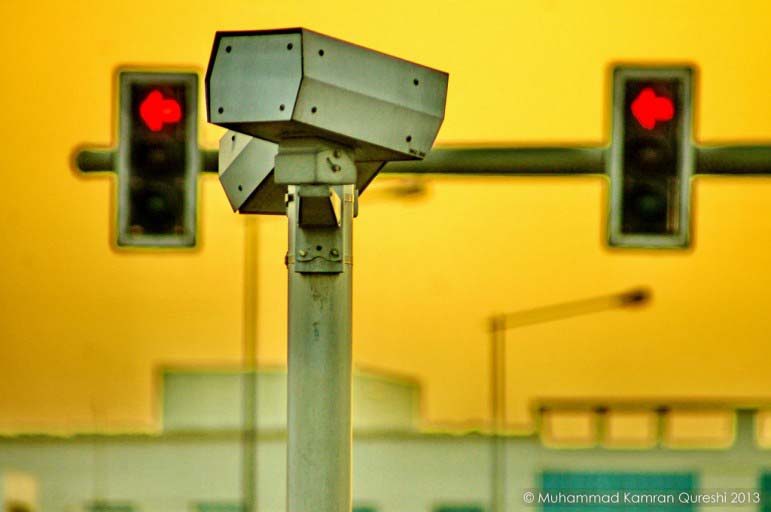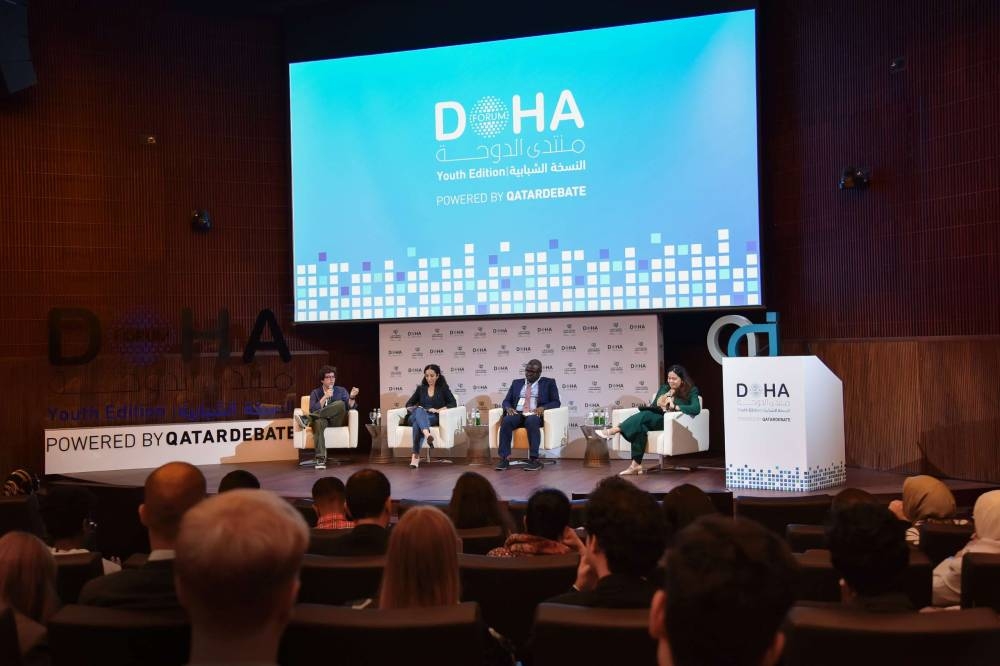
Qatar’s Ministry of Interior (MOI) went on a security gear shopping spree this week, signing deals to purchase millions of riyals worth of equipment at a Doha trade show.
Government officials inked agreements to buy new fire trucks, high-tech ID cards and surveillance technology systems at Milipol Qatar. During the biannual exhibition, several companies sell internal state security products, and some 6,600 attendees flocked to the Doha Exhibition Center to observe the wares over three days last week.
309 million riyals worth deals signed during the 3 days of #MilipolQatar2014, another QAR 20mn deals are planned to be announced soon.
— Milipol Qatar (@MilipolQatar) October 22, 2014
For exhibitors, one of the main draws was an opportunity to outfit some of the massive infrastructure projects in Qatar with security gear. A Milipol brochure for example highlighted the need to “enhance security levels in the Qatar passport department” and protect sensitive industrial sites such as the 2022 World Cup stadium sites and the new Doha Port.
It also mentioned opportunities to sell equipment for use in “fighting terrorism” to Qatar Rail and Qatar’s Internal Security Force (Lekhwiya).
In recent years, government authorities have publicly displayed some of their most high-tech monitoring equipment, such as scanners used to detect drugs and explosives at Hamad International Airport and surveillance cameras that help monitor the flow of traffic.
While such tools are common in major cities around the world, little is known about the Qatar government’s specific capability or procedures for responding to large-scale incidents within its borders.
For example, some observers were taken aback at the sight of four buses filled with riot police officers responding to a brawl at Sheraton Hotel during renovations earlier this year.
Similarly, it’s unclear how authorities monitor the activities of residents, beyond isolated snapshots such as a Wikileaks report that showed the Qatar government has purchased software that can secretly monitor emails and other forms of online communication.
Shopping list
The deals disclosed between Qatar authorities and at Milipol vendors appear to be for more benign purposes. In a closing press conference, MOI said it finalized purchases totaling QR309 million (US$84.86 million). The ministry’s Twitter feed said this includes (aggregate contract values in parenthesis):
- 39 firefighting vehicles and rescue equipment (QR94.5 million);
- 474 MOI vehicles (QR52.8 million);
- Network infrastructure and related programs (QR38.5 million);
- Development and maintenance of an Airbus Defense & Space communications system (QR36.6 million);
- 20 search and rescue boats (QR34 million);
- A deal with Salam Security for several surveillance systems and programs (QR22.4 million);
- Smart ID cards (QR9.9 million); and
- 11 traffic radars and 10 truck weigh bridges (QR3.8 million).
MOI officials said that a further QR20 million worth of contracts to buy security devices, military equipment and radars would be closed in the coming weeks.
Road safety
Some of the equipment already in use across Qatar was also on display at Milipol.
That includes an advanced road radar that’s been installed in Ras Laffan and expected to be rolled out along the Dukhan Highway as well as the Corniche and the road leading to the airport, according to the Gulf Times.
In recent years, authorities have said various radar systems have been installed along the country’s roads, including devices designed to catch drivers who overtake other motorists on the right as well as technology that monitors a vehicle’s speed between two points along a road.
External security
While Milipol is focused on products and services for domestic use, it comes at a time when Qatar is also strengthening its military might to ward off external threats.

Earlier this year, the Qatar Armed Forces signed artillery deals worth QR87 billion with more than 20 defense contractors at the Doha International Maritime Defence Exhibition.
The Gulf country is also working toward building its own Patriot missile defense system through an estimated $2 billion (approx. QR7.3 billion) deal with US weapons maker Raytheon Corp.
The system is expected to be installed by December, making Qatar the fourth Gulf country to operate the missile defense system.
Thoughts?







